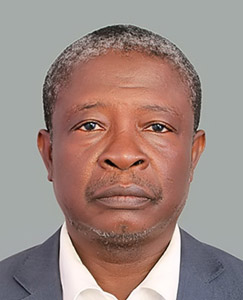Through the height of COVID-19 infections, our researchers worked with surgeons around the world to make sure operations could continue safely during a pandemic. Now we are expanding this work to employ high-quality evidence to help make surgery safer globally.
Each year, 4.2 million people around the world die within 30 days of an operation, and half of these deaths occur in low and middle-income countries (LMICs). Yet if we could make surgery safe and affordable, 28% of the disease burden in low and mid-income countries may be cured, treated or palliated by safe, accessible surgery.
During the pandemic, the NIHR (National Institute for Health and Care Research) Global Health Research Unit on Global Surgery based at Birmingham rapidly created new guidelines for controlling COVID-19 infection, which avoided operations having to be put on hold altogether. Now the team are continuing to work to reduce infection after surgery from all diseases, not just COVID-19, and to improve access to routine surgery, especially in rural areas.
Professor Dion Morton OBE, one of the co-directors of the Unit, says: 'Each country, even each area in a country, has its own unique circumstances; different resources, training systems, disease vulnerabilities, funding, cultures, etc. Creating surgical guidelines based on one country and importing them into another country just does not work. If we are to make surgery safer and more affordable for millions of people, the solutions need to be context-specific. That is why we are working with local surgeons and hospitals around the world, empowering them to research what really works for them.'
The NIHR Global Surgery Unit: Discovering new ways to save lives
Based at the University of Birmingham, the NIHR Global Surgery Unit (a consortium between the Universities of Birmingham and Edinburgh, plus international partners) brings together expertise from 20,000 surgeons in more than 100 countries.
Seven research hubs have been established in Benin, Ghana, India, Mexico, Nigeria, Rwanda and South Africa. Each hub undertakes its own surgical research, and supports work by other hospitals across the country, many in rural or remote locations.
The Unit's FALCON research trial into reducing wound infection after abdominal surgery, involving 6,000 patients across seven countries, has proved that some less expensive interventions are just as effective as more costly ones, such as using regular sutures in surgery rather than anti-bacterial ones. The resulting changes to practice, published in The Lancet, mean patients in low and middle-income countries will have access to cheaper and more deliverable surgery. In addition, the Unit has already trained over 500 surgeons, anaesthetists, nurses and other healthcare professionals in high quality research methodology, both face-to-face and online.
What we want to deliver next – and how it will help in Ghana
 Professor Stephen Tabiri, one of the co-directors of the Unit and the Dean of the School of Medicine at Ghana's University for Development Studies, says: 'We have several pieces of research underway to test methods for improving outcomes from surgery, including implementing telephone follow-up, so that patients are not put off getting care by the difficulties and costs of travelling to hospitals for post-surgery check-ups. Early findings indicate that there is greater uptake and engagement, resulting in better outcomes for patients.
Professor Stephen Tabiri, one of the co-directors of the Unit and the Dean of the School of Medicine at Ghana's University for Development Studies, says: 'We have several pieces of research underway to test methods for improving outcomes from surgery, including implementing telephone follow-up, so that patients are not put off getting care by the difficulties and costs of travelling to hospitals for post-surgery check-ups. Early findings indicate that there is greater uptake and engagement, resulting in better outcomes for patients.
'Where I work in Ghana, this could make a huge difference. Three-quarters of people in the northern regions of Ghana are in scattered rural communities, with limited health infrastructure and not enough health professionals.
'The Unit's next set of research trials is investigating how to reduce complications from wound infection, improve outcomes from cancer surgery and to evaluate access to healthcare for patients requiring surgery.
'The Unit's focus is on capacity building and strengthening infrastructure within LMICs, so that long-term effective surgical options and care are available without reliance on outside intervention. We are shifting ownership of global surgery research to in-country surgeons, with UK collaborators rather than UK leaders. We envisage that enabling locally placed surgical teams to advocate and implement best surgical practice in their clinics and hospitals will save patients from catastrophic healthcare expenditures and save lives.'
Read more about the Global Surgery Unit.

Find all the medals throughout the autumn 2022 edition of Old Joe to enter our Birmingham 2022 Commonwealth Games competition.